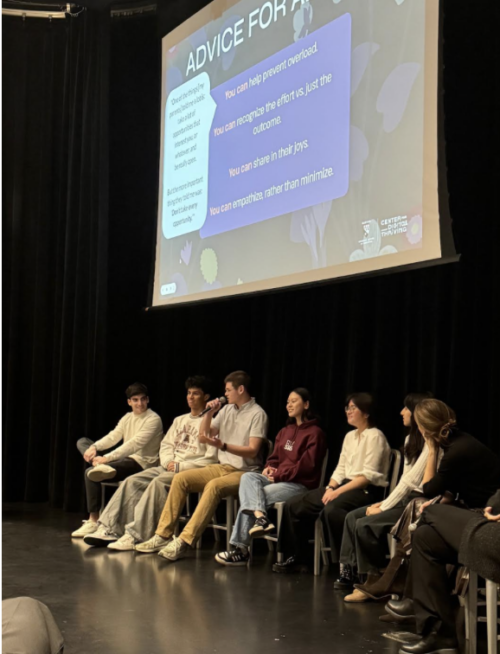On a Tuesday afternoon over Google Meets, I sat down to interview Fieldston’s Student Secretary of Technology Alex Goodman.
Goodman’s journey in the field of technology began at Ethical Culture, when he first learned how to use the coding platform Scratch in fourth grade. “Scratch is probably the most simple language you can get in terms of programming, and I would just eat that stuff up,” Goodman said. “I went on to make incredibly complicated projects.”
He later began learning Python and took engineering at Fieldston’s Middle School. When he reached ninth grade, he opted to embark on the four-year computer science track instead of continuing with engineering. “At the end of the day, I just felt like I was more of a software person than a hardware person.”
This year, Goodman’s main duties as Secretary of Technology have included setting up new charging stations, fixing tech issues and helping students navigate the new printing and Wi-Fi systems. “Whenever a student has a tech issue, I try to make as much awareness as possible that they should come to me or that they should come to the Tech Department,” Goodman said. “…We will do anything possible that we need to do in order to get that sorted out.”
In addition to the changes he has already implemented, Goodman has plans for future projects, including a citation generator that he designed in JavaScript. “I’ve got some exciting stuff cooking,” he said.
On Dec. 2, Goodman spoke at a panel hosted by Common Sense Media. Common Sense Media is a nonprofit organization that advocates for child-friendly laws regarding media while also funding research on media’s impact on children. The speakers on the panel were asked about a variety of topics, covering artificial intelligence and teen use of technology. Goodman mainly spoke about his views on the future of AI as well as the uncertainty surrounding it.
“When people don’t know about something and it keeps getting thrown around…their first reaction, in my opinion, is fear,” Goodman said. He described how the current state of AI is referred to as “narrow intelligence” because it only has one function. In the coming years, we will start to see more “general intelligence” – models that are capable of performing multiple tasks, making connections, abstract thinking and self-teaching. “Right now,” Goodman stated, “I don’t feel that what we have is dangerous.”
Goodman had a unique perspective on the panel; he didn’t receive a phone until eighth grade. He is satisfied with that decision. “My opinions on that panel were the reason I was there, not to oversee any sort of technology, not to help fix people’s problems but to actually give my input,” he said. “My input was the driving force behind my role on the panel.”
Goodman doesn’t have a presence on most major social media sites and advises students to listen to the social media limits that they give themselves. “If you tell yourself…you want to be on Tiktok for five minutes, do five minutes.” He also encourages students to fact-check what they see online and to avoid trying to bypass age restrictions on sites or apps or get around guidelines. “Trust major corporations at least a little. Trust government legislation, trust years of curated experts grappling with this issue.”
As technology continues to evolve, Goodman’s journey reminds us that we must navigate media with precaution and accountability alongside curiosity.






